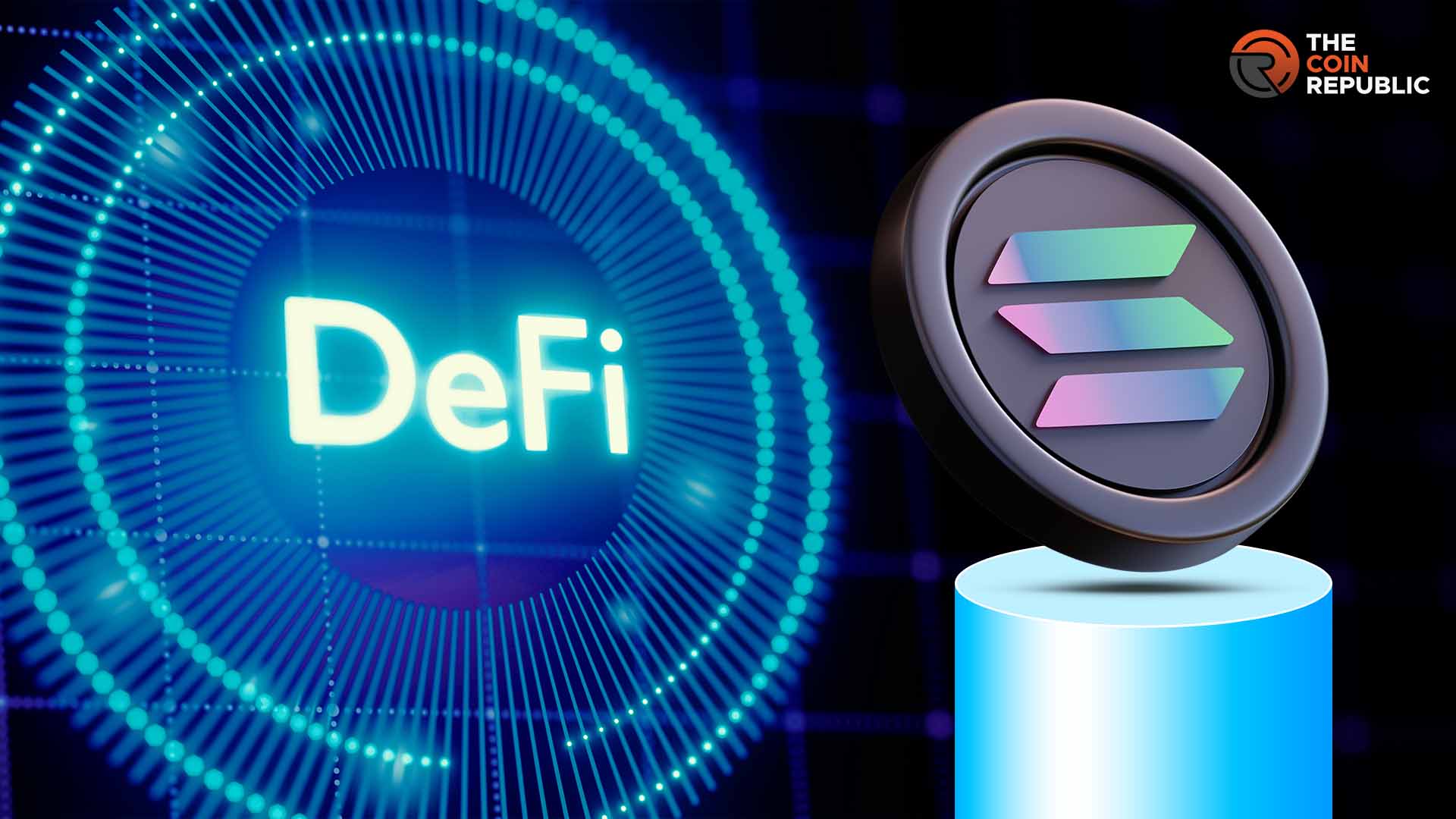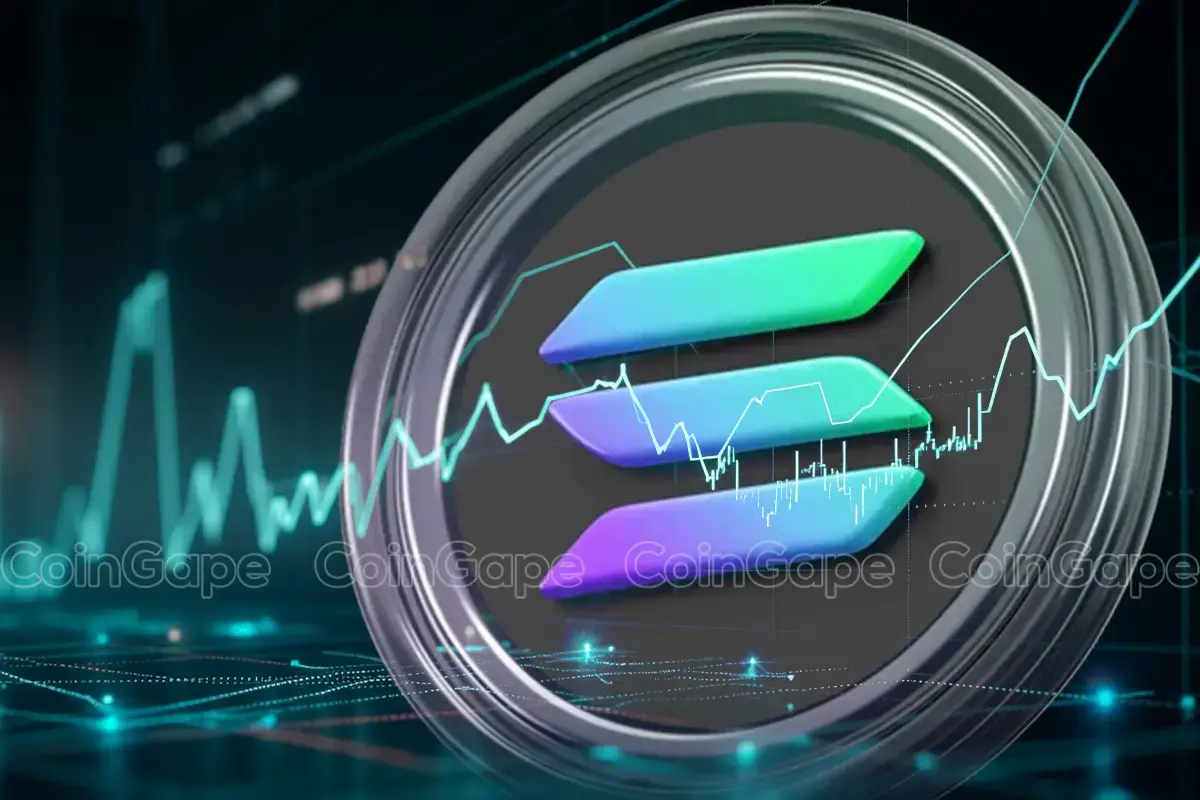Solana has reached a 3-year high in DeFi TVL at $9.52B. It is leading DEX trading volume with $3.98B in 24 hours.
The network’s efficiency and low costs drive adoption, and its SIMD-0215 proposal ensures scalability for growing demand in decentralized finance.
Solana Achieves Record DeFi TVL, Surpassing $9.5 Billion
Solana has hit a big milestone in the ecosystem surrounding its decentralized finance (DeFi). The network’s Total Value Locked (TVL) is over $9.52 billion for the first time since 2021.

This is a growing piece of optimism in the capabilities of Solana as a scalable blockchain platform capable of facilitating dApps and DeFi.
With TVL rising steadily, the network is becoming more and more popular in the crypto space, making Solana increasingly influential.
The stablecoin market largely supports this growth. It holds $5.523 billion of the total TVL. That is a testament to Solana’s strong grip in the stablecoin transaction space in the DeFi ecosystem.
– Advertisement –
Not surprisingly, Solana also performs well in the DeFi market when it comes to transaction volume and the network’s revenue.
The high volume of transactions significantly contributes to those fees: the network has produced $4.35 million in fees over the past 24 hours.
Moreover, Solana earned $2.18 million in revenue for the same period, proving its ecosystem is healthy and growing.
Solana’s decentralized applications are further highlighted by the $3.98 billion in 24-hour transaction volume.
The network can process high-volume transactions at lower cost than many of its competitors. That makes it a network of choice for decentralized finance projects and traders alike.
Leads DEX Trading Volume, Outpaces Ethereum and Layer 2s
In an unusual case, Solana surpassed all other Layer 2 solutions and Ethereum in 24-hour decentralized exchange (DEX) trading volume at $3.982 billion.
By doing so, it takes the lead for decentralized exchange activity, with a huge margin over Ethereum’s $1.706 billion.

The rising popularity of the decentralized finance space is underlined by Solana’s dominance of DEX trading volume.
Rapidly increasing popularity of the network among traders is partly based on its ability to process large trading volumes. It is also an an efficient alternative and low in cost.
However, other blockchain networks also reported high DEX trading activity, but the volumes were significantly smaller than Solana’s.
Layer 2 solution Base hit $1.207 billion in 24 hour trading volume. Binance Smart Chain (BSC) followed, with $877.64 million.
Despite these numbers, Solana’s performance has put it in the front seat of decentralized exchange activity. Its liquidity pools and ecosystem remain healthy and fed.
Also Sui posted big numbers with $398.46 million, and Arbitrum $360.93 million. However, they were given away by Solana’s dominance.
Solana’s scalability means it can handle thousands of transactions per second for a relatively low cost. That’s what drives the success of its DEX in volume traded.
Thanks to the high throughput and low transaction fees of the blockchain, both retail traders and large liquidity providers are willing to use it.
Here, the benefits allow for a high amount of decentralized trades on Solana without congestion. This plagued other blockchains, especially during times of high network usage.
Proposes SIMD-0215 for Enhanced Scalability
The Solana Foundation has just announced SIMD-0215. It is a new proposal to scale the network in the face of future demand and its growing ecosystem, capable of handling billions of user accounts.
a new hashing method in Accounts Lattice Hash for maintaining an updated hash of the total account state using homomorphic hashing was proposed.
The method aimed to replace the current Epoch Accounts Hash, which failed to serve high-traffic Epochs unresponsive to large numbers of account updates.
To address the speed and security in account state updates in Solana, the new Accounts Lattice Hash method was introduced.
It allows Solana to be better equipped for an increased number of user accounts and transactions. This way it works fast even when there are many users and the network gets big.
The current system works slowly and uses too many resources as the network grows. Using this new approach, Solana will be able to keep account states in real time updated.
This efficiently keeps the network fast as it continues to grow. All things being equal, this proposal significantly affects the scalability of the infrastructure of Solana.
The network can now preserve its high throughput and low latency for serving millions of users and decentralized applications.
Adopting the proposal will guarantee Solana’s competitiveness at the same time as blocks of Ethereum and more decentralized blockchains appear.
With growing decentralized finance (DeFi) and dApp usage, this demand for more efficient and scalable blockchain networks grows even more so.
But these challenges are what SIMD-0215 is designed to solve, allowing Solana to meet growing decentralized financial (DeFi) services and application demand while remaining performance and security agnostic.










